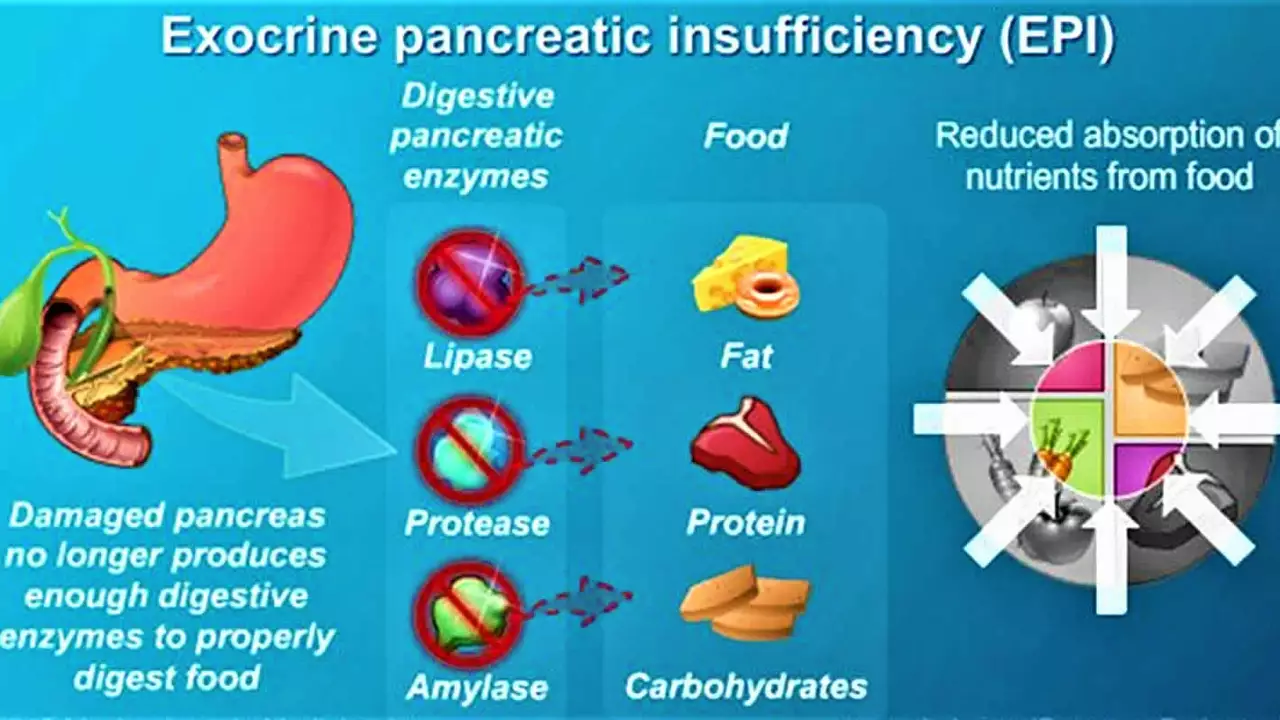Understanding Behavior Disorders and the Importance of Diet
In recent years, there has been a growing awareness of the connection between diet and mental health. As someone who has experienced the impact of nutrition on my own well-being, I'd like to share my insights into the role of diet and nutrition in managing behavior disorders. In this article, we will explore various aspects of this connection and how making changes to our diet can help improve symptoms associated with these disorders.
Identifying Common Behavior Disorders and Their Symptoms
Before diving into the role of nutrition, let's first understand what behavior disorders are and their common symptoms. Behavior disorders, also known as disruptive behavior disorders, are a group of mental health conditions that involve persistent patterns of disruptive and uncooperative behavior. Some common behavior disorders include Attention Deficit Hyperactivity Disorder (ADHD), Oppositional Defiant Disorder (ODD), and Conduct Disorder (CD). Symptoms can vary depending on the specific disorder but may include impulsivity, aggression, irritability, and difficulty focusing.
How Diet and Nutrition Affect Brain Function and Behavior
Our brain is constantly at work, processing information and controlling our bodily functions. It relies on a steady supply of nutrients to function optimally. When we consume a balanced diet, our brain receives the necessary nutrients to produce neurotransmitters – chemicals responsible for communication between brain cells. An imbalance in these neurotransmitters can lead to various behavior disorders. For instance, low levels of serotonin, a neurotransmitter associated with mood regulation, can contribute to symptoms of depression and anxiety. By making conscious efforts to improve our diet, we can directly impact our brain's health and, consequently, our behavior.
Nutritional Deficiencies and Their Impact on Behavior
Several nutritional deficiencies can contribute to the development or worsening of behavior disorders. Some common deficiencies include Omega-3 fatty acids, B-vitamins, magnesium, and zinc. Omega-3 fatty acids are essential for brain function and have been found to reduce symptoms of ADHD, while B-vitamins play a role in producing neurotransmitters. Magnesium and zinc deficiencies have also been linked to irritability, aggression, and other behavioral issues. By addressing these deficiencies through diet or supplementation, we can make a significant impact on our mental well-being.
Implementing a Balanced Diet for Optimal Mental Health
Adopting a balanced diet is key to providing our brain with the nutrients it needs to function properly. Some key components of a balanced diet include lean protein sources, whole grains, fruits and vegetables, and healthy fats. Protein is essential for neurotransmitter production, while whole grains provide a steady supply of energy for the brain. Fruits and vegetables are rich in vitamins, minerals, and antioxidants that support brain health, and healthy fats, such as Omega-3s, aid in maintaining optimal brain function.
Eliminating Food Triggers and Identifying Sensitivities
For some individuals, certain foods may exacerbate symptoms of behavior disorders. Common food triggers include artificial additives, sugar, and caffeine. By eliminating these potential triggers from our diet and monitoring our symptoms, we can better understand our body's unique sensitivities and reactions to certain foods. It may also be helpful to keep a food journal to track our food intake and any changes in behavior to identify patterns and potential triggers.
Supplementation and Nutrient Support for Behavior Disorders
While a balanced diet is essential for mental health, some individuals may require additional supplementation to address specific nutrient deficiencies. It's important to consult with a healthcare professional before starting any supplementation regimen. They can help determine the appropriate supplements and dosages based on individual needs. Common supplements for behavior disorders include Omega-3 fatty acids, B-vitamins, magnesium, and zinc.
Consulting with Professionals and Developing a Personalized Plan
Managing behavior disorders through diet and nutrition is a complex process that requires a personalized approach. It's essential to work with healthcare professionals, such as psychiatrists, therapists, and nutritionists, to develop a tailored plan that addresses our unique needs and challenges. By combining professional guidance with our own commitment to improving our diet, we can make significant strides in managing our behavior disorders and improving our overall mental health.
In conclusion, the connection between diet, nutrition, and behavior disorders is significant and should not be overlooked. By understanding the impact of nutritional deficiencies and implementing a balanced diet, we can take control of our mental well-being and improve the symptoms associated with behavior disorders. Remember that it's essential to work with healthcare professionals when making significant dietary changes and seeking supplementation advice. With dedication and persistence, we can make lasting improvements in our mental health through proper nutrition and self-care.







Nicola Strand
May 12, 2023 AT 14:34It is imperative to acknowledge that attributing behavioral pathology primarily to nutritional factors constitutes a reductionist perspective. While diet undeniably influences neurochemical pathways, genetic predispositions and environmental stressors remain predominant determinants of disorders such as ADHD and ODD. Moreover, the evidence linking specific micronutrients to symptom amelioration is, at best, modest and frequently confounded by methodological shortcomings. One must also consider the ethical ramifications of prescribing dietary regimens in lieu of proven psychopharmacological interventions. Consequently, any therapeutic model that elevates nutrition above a complementary role warrants cautious scrutiny. In sum, a balanced, multimodal approach is advisable, rather than an uncritical endorsement of dietary cures.
Jackie Zheng
May 12, 2023 AT 17:20I must confess, the article's intent resonates with the age‑old adage that "we are what we eat," yet a few linguistic slips slipped through unnoticed. For instance, the phrase "behaviour disorders" should consistently use the American spelling "behavior" throughout, given the intended audience. Beyond that triviality, the notion that nutrients can shape consciousness invites a quiet kind of philosophy: do we feed our thoughts, or do our thoughts select the food? In any case, maintaining a balanced diet is commendable, but let us not abandon rigorous scientific inquiry in favor of hopeful optimism. Finally, remember that clarity of prose mirrors clarity of thought; a well‑edited paragraph can be as nourishing as a well‑balanced meal.
Hariom Godhani
May 12, 2023 AT 20:07Listen, dear seekers of solace, for the mind is a tempestuous sea and nutrition the humble yet potent wind that may yet steer its raging currents. I have witnessed, in the dimly lit corridors of clinics, children whose fury seemed boundless, only to soften when a simple spoonful of cold‑pressed salmon oil touched their tongues. It is not a miracle cure; rather, it is a reminder that the body is an intricate tapestry woven from threads of proteins, fats, minerals, and the invisible whispers of neurotransmitters. When those threads fray-when magnesium wanes or zinc deserts the synapse-chaos erupts, manifesting as impulsivity, irritability, or the relentless march of inattention. The literature, though sprinkled with small randomized trials, hints at a pattern: omega‑3s can temper the hyperactivity of ADHD, and B‑vitamins may lend steadiness to wandering thoughts. Yet the path to recovery is seldom linear; it demands patience, observation, and an unwavering commitment to the slow, patient work of self‑care. One must record each bite, each mood swing, each fleeting moment of calm, for only through diligent tracking can the elusive triggers be uncovered. Do not be deceived by the siren call of quick fixes; the body rebuffs synthetic shortcuts in favor of sustainable nourishment. In the same vein, sugar-those crystalline treacherous delights-may ignite the very fires they promise to soothe, amplifying aggression and anxiety. Caffeine, the bitter elixir, can sharpen focus for some while sending others spiraling into jittery agitation. It is a paradoxical dance, a choreography of cause and effect that requires a keen eye and a steady heart. Moreover, the wisdom of seasoned nutritionists, trained in the alchemy of macro‑ and micronutrients, cannot be dismissed as mere opinion; their guidance bridges the gap between anecdote and evidence. As we navigate this terrain, let us remember that compassion for oneself is paramount-self‑critique mongering only deepens the wounds we seek to heal. Ultimately, the synthesis of dietary mindfulness, professional counsel, and personal resolve may transform the cacophony of disorder into a symphony of wellbeing. Thus, dear readers, I implore you: embrace the humble plate with reverence, for within it lies the potential to rewrite the narrative of your mind.
Jackie Berry
May 13, 2023 AT 19:46Reading through the guide, I was reminded how food traditions across cultures often carry hidden benefits for mental health. For example, Mediterranean diets rich in olive oil and fish have long been linked to calmer moods, while many Asian cuisines emphasize fermented foods that support gut health. By sharing these diverse culinary practices, we can foster a more inclusive conversation about nutrition and behavior. Ultimately, a gentle, evidence‑based approach that respects individual preferences will likely yield the most sustainable outcomes.
Mikayla May
May 13, 2023 AT 23:56If you’re looking for a quick starter, try adding a handful of walnuts or a teaspoon of ground flaxseed to your morning oatmeal; both pack a solid dose of omega‑3s that may help with focus. It’s an easy swap that doesn’t require a big recipe overhaul.
Jimmy the Exploder
May 14, 2023 AT 23:33Diet changes are a waste of time
Robert Jackson
May 15, 2023 AT 02:20It is categorically inaccurate to dismiss the extensive corpus of peer‑reviewed studies demonstrating the modest yet statistically significant impact of specific micronutrients on behavioral symptomatology. To assert otherwise reflects a gross misunderstanding of nutritional psychiatry and undermines the rigor of evidence‑based practice. Moreover, the reductionist claim that “diet changes are a waste of time” ignores the multifactorial etiology of disorders such as ADHD, wherein diet constitutes a non‑negligible variable. I therefore urge a re‑examination of the data rather than reliance on anecdotal skepticism.
Robert Hunter
May 16, 2023 AT 03:20From a global perspective, it is clear that dietary patterns shape more than just physical health; they influence emotional regulation and social behavior as well. When communities adopt nutrient‑dense foods, we often observe a ripple effect of increased patience and cooperation. This underscores the importance of integrating nutritional education into public health initiatives worldwide.
Shruti Agrawal
May 16, 2023 AT 06:06I hear your concerns and appreciate the cautious tone. It’s true that not every supplement works for everyone but many have solid evidence. Listening to one’s body and consulting a professional is always wise.
Katey Nelson
May 17, 2023 AT 07:06Wow this topic really got me thinking about how everything we eat kinda feeds our brain like fuel for a car 😊. I always feel when I skip breakfast my mind feels foggy and I get cranky with my kids, it’s like my brain is on low battery 😅. Someone once told me that sugar is like a roller coaster for mood, up then down, and I’ve definitely felt that rush and crash after a candy bar 🍭. It makes me wonder if all the crazy feelings we have are just our stomachs talking to our heads, you know? I even started keeping a tiny notebook to write down what I ate and how I felt later, and it’s crazy how patterns show up 📓. Sometimes I see that a handful of almonds helps me stay calm during work, while coffee makes me jumpy 🐰. I think we should all try a little experiment and see what foods make us feel good, because who knows, maybe we’ll find a secret key to happiness hidden in a bowl of soup 🥣. Anyway, just sharing my thoughts because I love talking about food and feelings :)
Joery van Druten
May 17, 2023 AT 09:53While personal anecdotes can be illuminating, it is essential to corroborate such observations with controlled studies to avoid confirmation bias. Systematic reviews have identified consistent associations between omega‑3 intake and reduced hyperactivity, suggesting that your notebook approach may indeed have a physiological basis. For anyone considering a similar self‑monitoring regimen, I recommend using a standardized food‑frequency questionnaire alongside validated mood scales to enhance reliability.